CoE Project 87: PRECA – Preparedness and Response for Mass Gatherings and other Health Threats in Central Asia
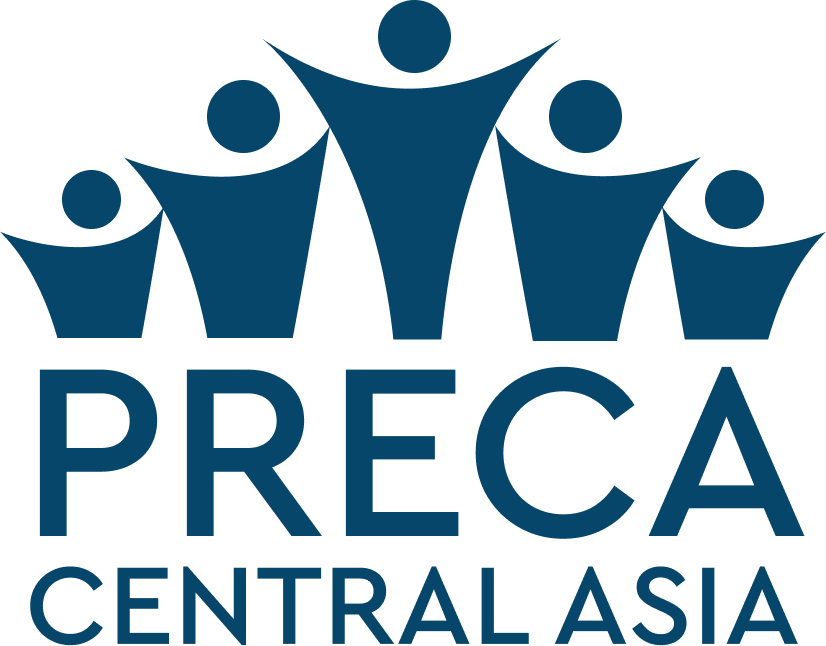
We love Mass Gatherings, and they can have real benefits. However, COVID reminded us that they can threaten human health. Today, more and more people are moving around Central Asia and increasing numbers of Mass Gatherings will present new or increased health threats to Central Asia. The preparation for Mass Gatherings requires considerable organisation and coordination to protect and safeguard public health .
P87 PRECA aims to strengthen and empower Mass Gathering Public health preparedness and response by:
-
Improving Infection Prevention and Control (IPC) at Mass Gatherings by enhancing
-
the safety of food through food hygiene training and
-
the safety of water through water quality testing and protection of sources.
-
-
Guarding against chemical threats to Mass Gatherings by developing Poison Information Centres in each country, connected to form a regional network.
-
Ensuring that Public Health Command, Control and Communication (C3) systems provide rapid, regular, and transparent communications.
-
Ensuring that Mass Gatherings’ stakeholders are properly resourced to meet the task by delivering the right equipment to Partner Countries.
Development of exercises to test plans and delivery of six national exercises at the end of the project.
PROGRESS
P87 PRECA is about halfway through.
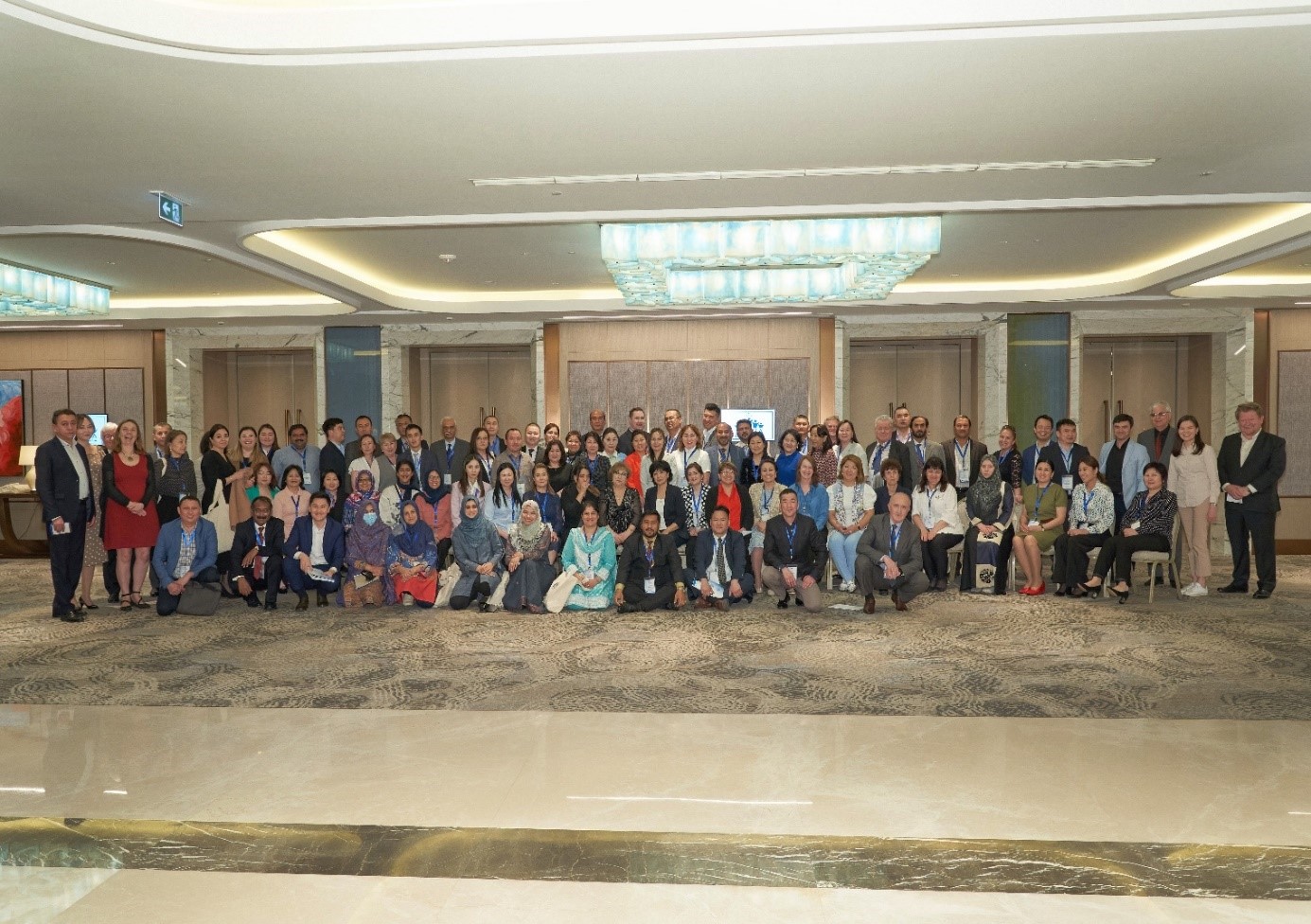
In Spring 2022, we held a major face-to-face ‘symposium’ in-region, consisting of 4 x Work Packages (WP), Train The Trainer (TTT) courses, a Regional Tabletop “Exercise Olympic Gold” and 5 x inaugural meetings of the WP Regional Working Groups. This major event was attended by 130 participants and H.E. EU Ambassador to Uzbekistan Ms. Charlotte Adriaen was one of the keynote speakers. A brief video documentary of the Symposium is at: https://disk.yandex.com/i/EIOGGI_a8qYvEQ
-
We now have a Regional Working Group for each work package that met in Tashkent last year and will continue to meet regularly to drive the project forward. Their aims include:
-
Development of Regional Guidelines
Ensuring a basic system of fast information exchange during a Mass Gathering event or crisis
Public awareness raising activities across the region. and
Developing or reinforcing country agreements for mutual support
-
The Regional Working Groups generally contain 1 representative from each participating country and have elected local co-chairs and secretaries. They meet on-line usually on a monthly basis. National Training courses are being run by P87 Master Trainers:
National Training in Kazakhstan– Almaty
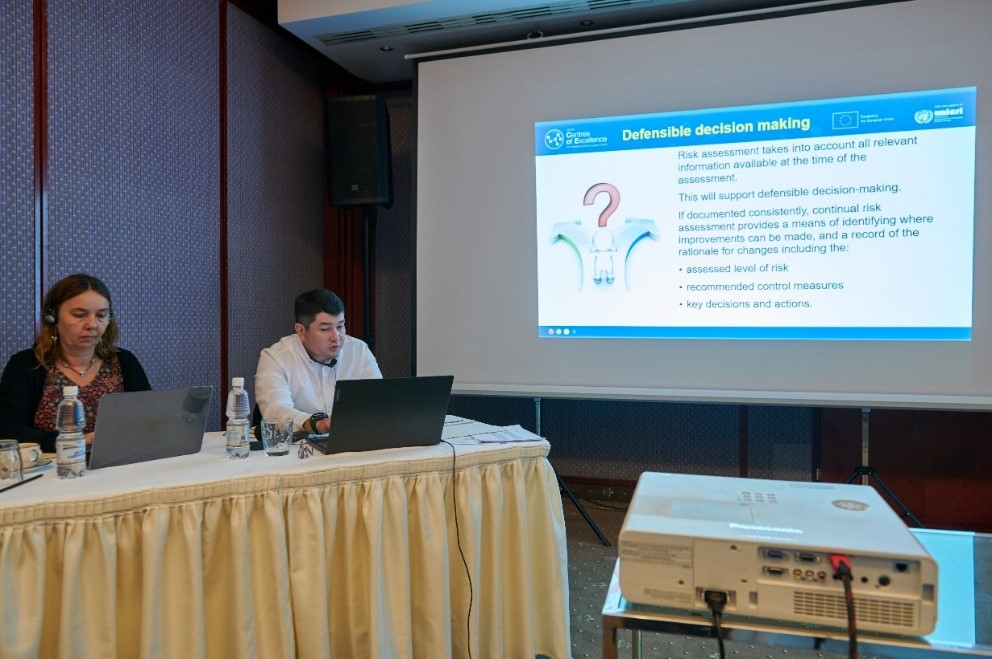
National training in Tajikistan- Dushanbe
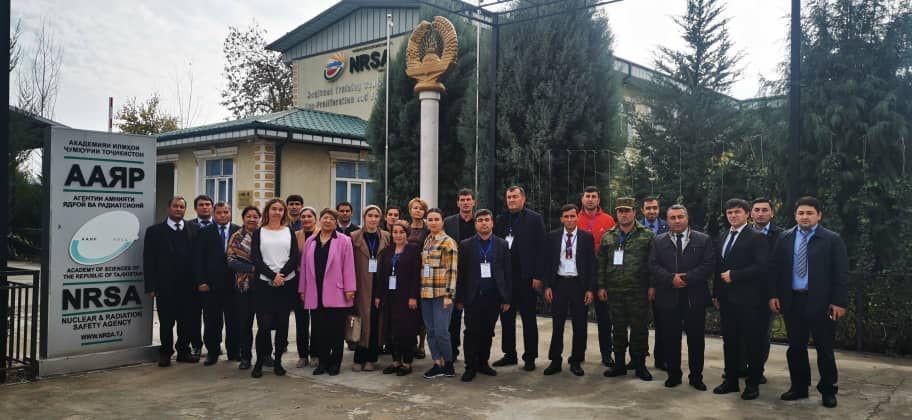
National Training in Pakistan – Islamabad
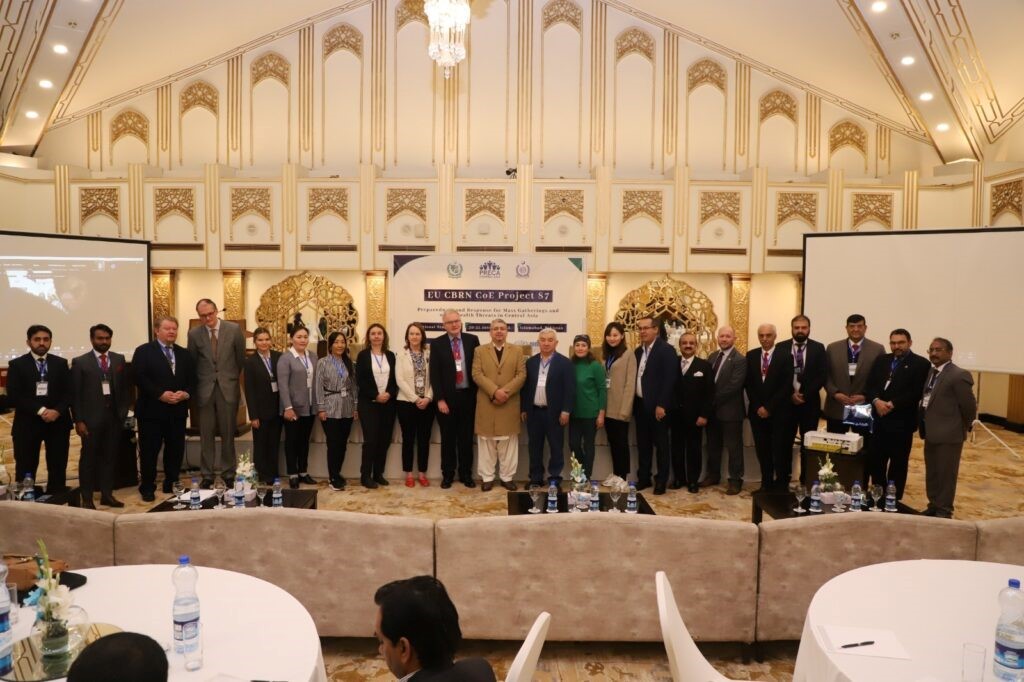
-
TOXBASE (International Poison Information Centres’ chemical database) access and training has been provided to clinical Public Health professionals in all Partner Countries, bringing the establishment of Poison Information Centres and a regional Poison Information Centre network one step closer.
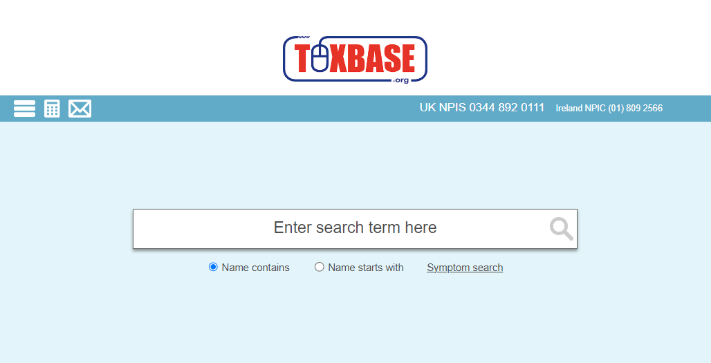
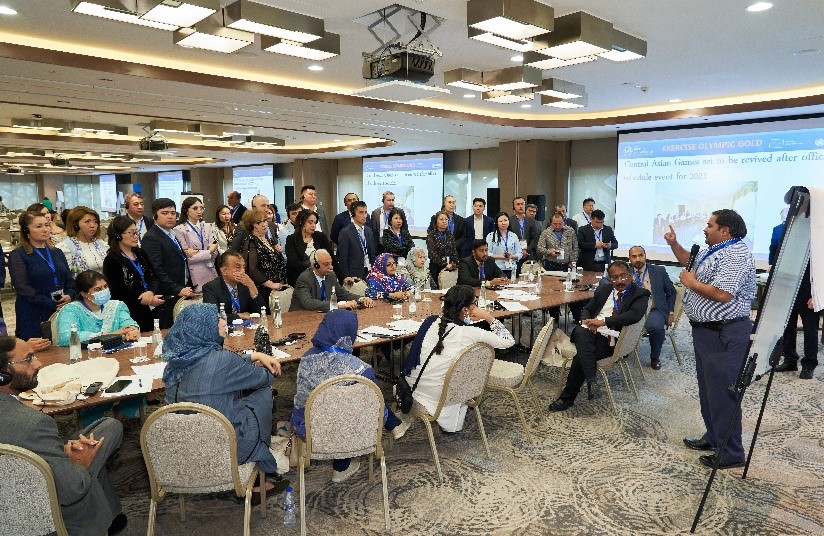
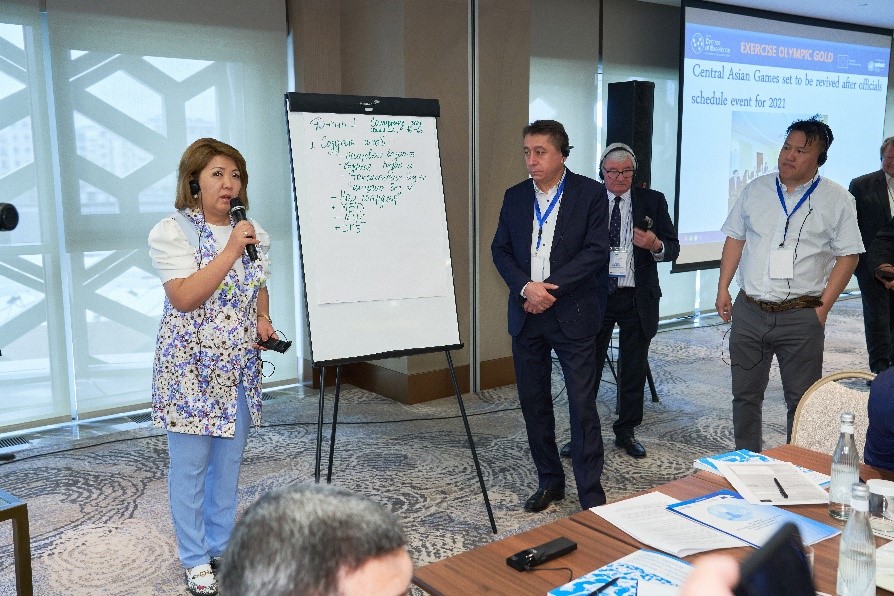
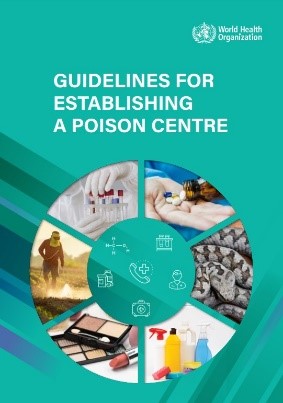
-
The World Bank’s International Finance Corporation’s (IFC) Food Safety Advisory Program has also become an observer on the Project and has shared some food safety resources.
-
The Project Team and other invited participants meet on ZOOM every Friday at 10am Central European Time (CET) and around twice a year in person.
-
A project website has been published in English and Russian and is at: https://preca.istc.int/en-l

NEWS FROM THE PRECA WORK PACKAGES
Food Safety
Pakistan hosted a National Training Course on Food Safety in the Marriott Hotel, Islamabad on 30th & 31st of January 2023. Prof. Rani Faryal Faheem Tahir, National Institute of Health (NIH) provided the training on Food Safety Management Systems and HACCP based on EU legislation and best practices. Representatives from Punjab, Sindh, KPK, Baluchistan, Islamabad Capital federal and Gilgit-Baltistan attended the training. It was a very informative session with lots of discussion between the attendees. Representatives from each Province provided a presentation on the gaps and recommendations for their systems. It was agreed that communication will continue between the participants to work towards improving food safety standards across the provinces
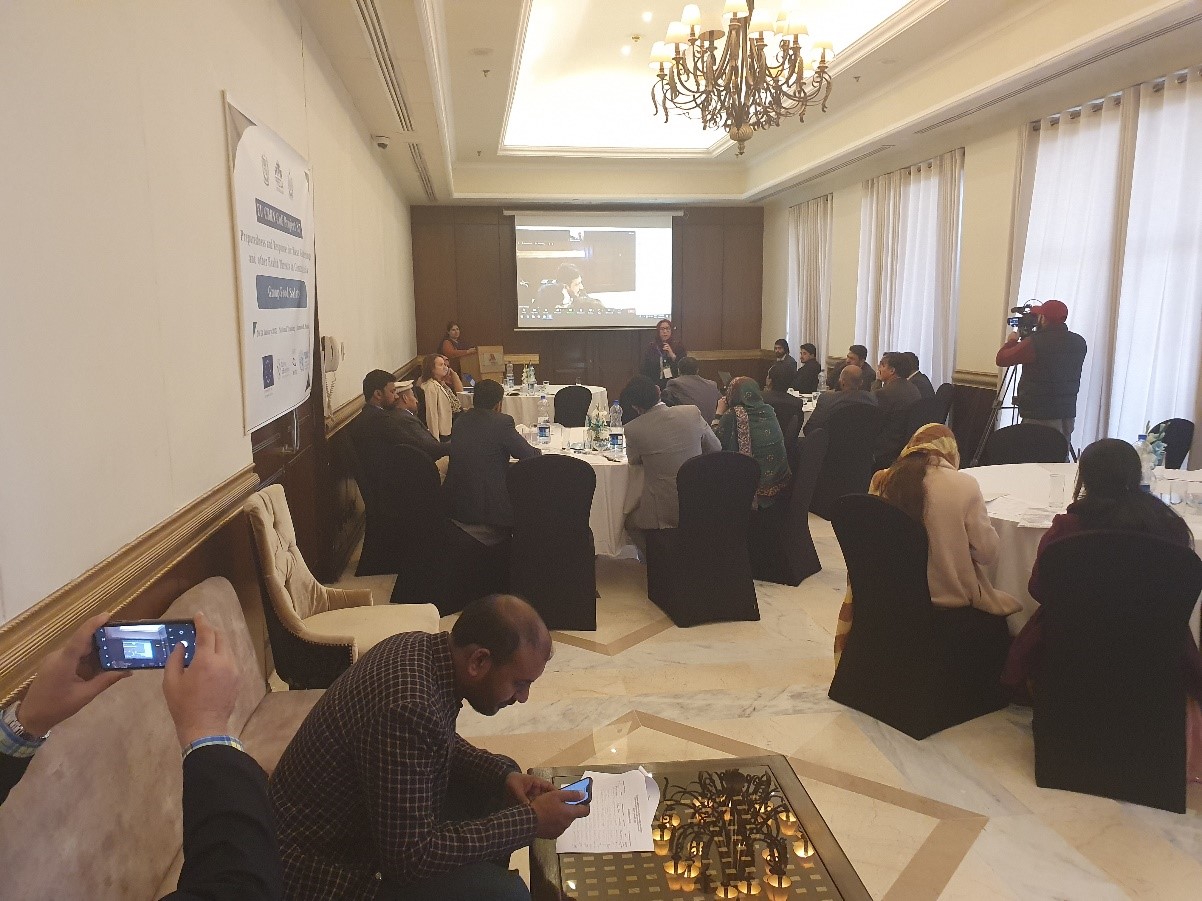
Water Safety
During the training event in Islamabad, we witnessed the training being delivered by the local Water team of 3. As part of the event, we spent some time discussing differences between the regions of Pakistan and how they related to the planning of mass gatherings. We had interesting visits to the National Institute of Health (NIH) laboratories and identified other cogs in the wheel which may prove important as we develop Mass Gatherings’ Regional guidance.
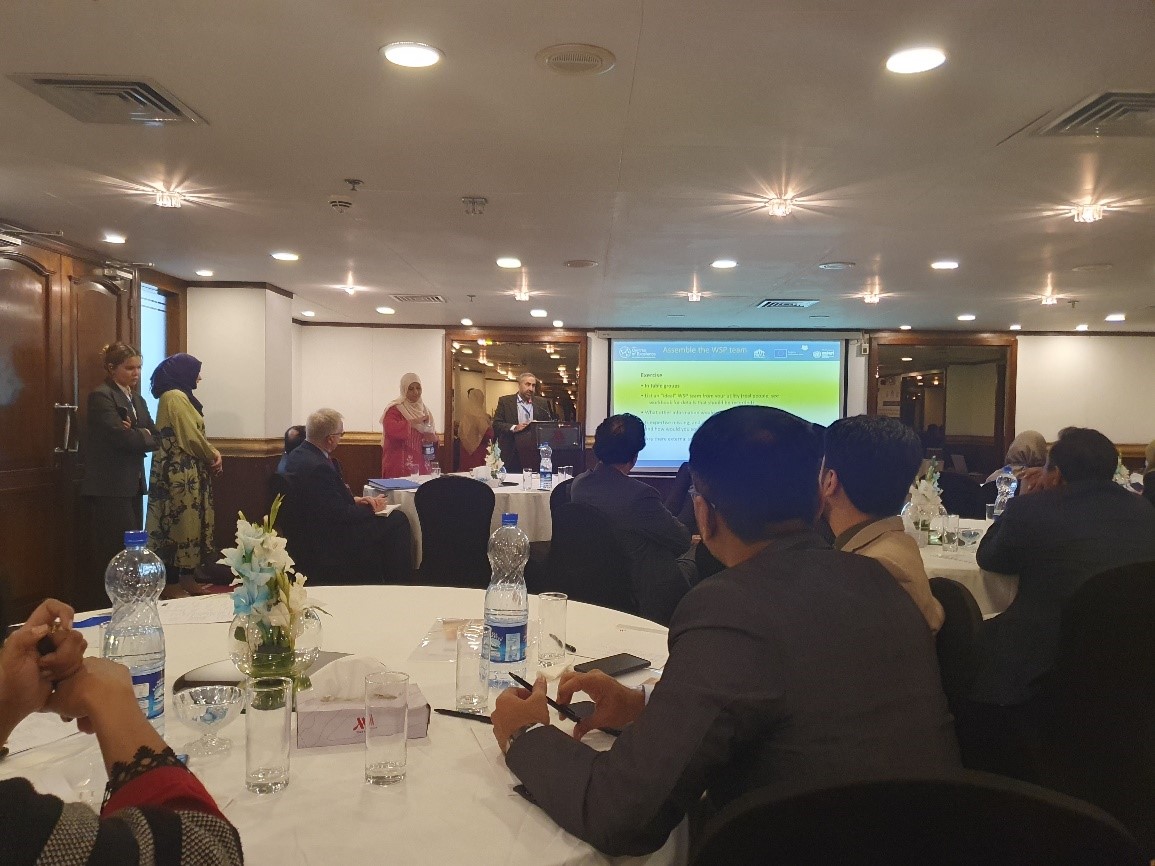
Chemicals & Poison Information Centres
In addition to attending Pakistan’s National Training course on Chemicals & Poison Information Centres , the Chemicals & Poison Information Centres Regional Working Group visited the National Institute of Health in Islamabad and discussed plans for the permanent establishment of Pakistan’s first Poison Information Centre.
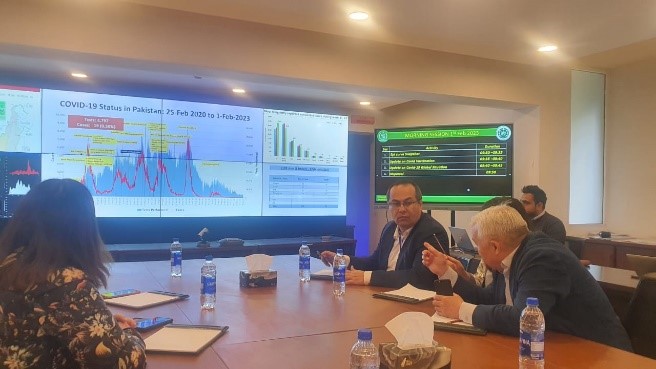
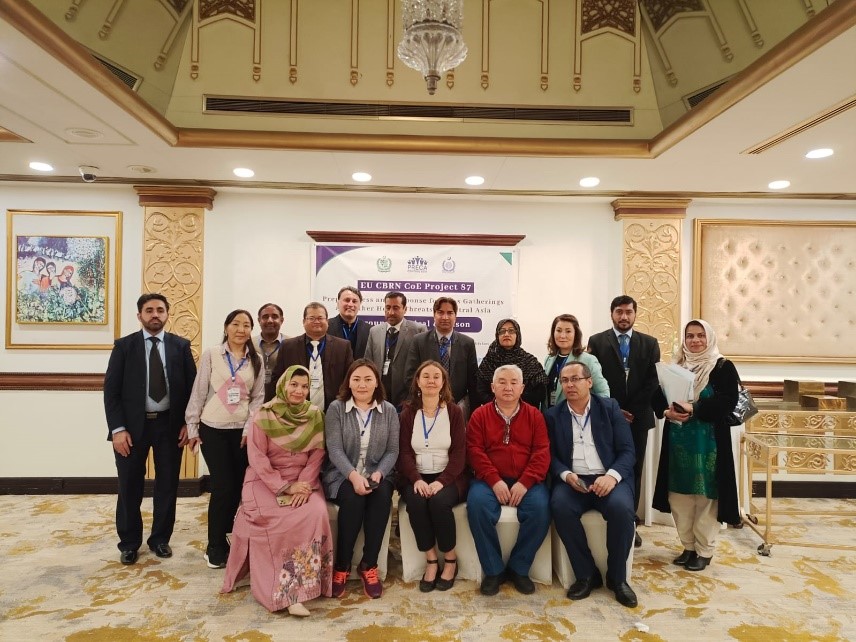
Exercises and Testing & Public Health C3
The RWG has held scoping meetings monthly on Zoom and the National Focal Points have been included to raise awareness at government level. Permissions are required to carry out the national exercises. A combined meeting with C3 RWG and the NFPs is scheduled for 27 – 28 February in Bishkek. The concept note will be reviewed, and the road map drawn up.
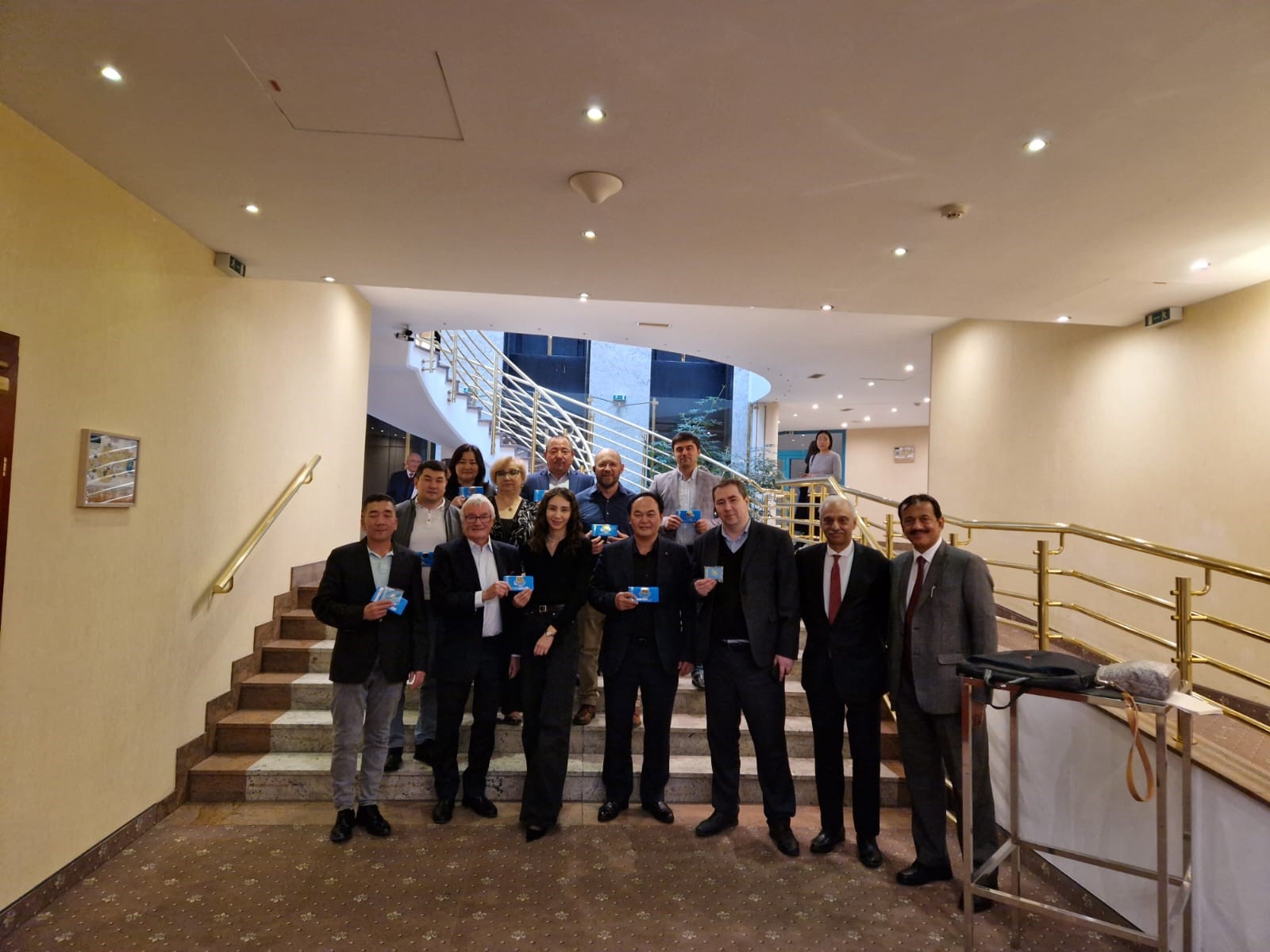
WAY AHEAD
- More National Training courses will follow and will be mentored by Consortium Experts.
- Equipment and related SOPs will be identified, procured and delivered to each country.
- National and regional workshops, seminars and exercises will be held to develop and test capabilities.
- Regional activities will be held to strengthen health preparedness and response networks.
- A basic system of fast information exchange during a Mass Gathering event or crisis will be developed.
- Public awareness raising activities will be carried out.
- Country agreements for mutual support will be enhanced and/or established.

